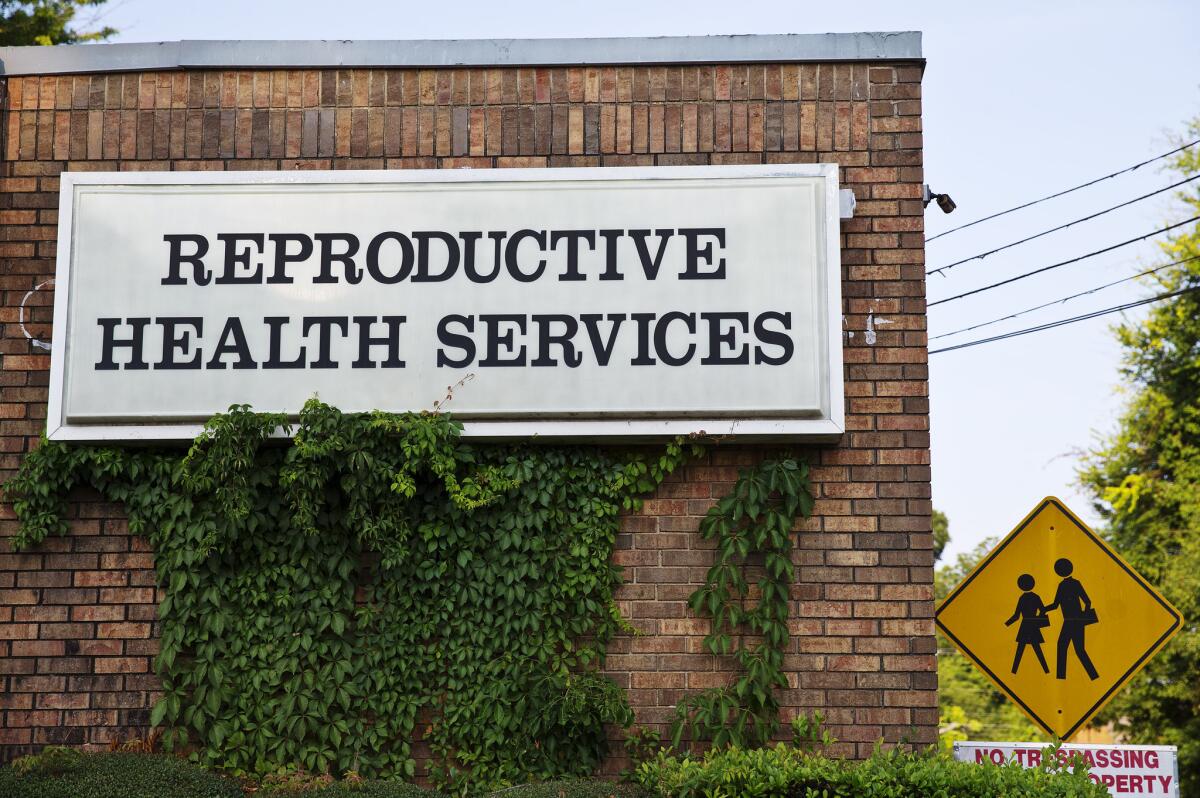Editorial: We don’t need underhanded attempts to obstruct access to abortion

- Share via
Several states have enacted laws in recent years that require doctors who perform abortions at clinics to have admitting privileges at nearby hospitals. These laws, masquerading as measures to protect the health of women, are nothing more than underhanded attempts to obstruct access to abortion services. In every state where such a law has been passed, it would result in the closure of at least some abortion clinics, making it substantially more difficult for women to get the reproductive healthcare to which they are constitutionally entitled.
A federal appeals court panel late last month blocked Mississippi’s version of the law from going into effect, noting that it would close the only abortion clinic in the state, in violation of the Constitution. The doctors at the clinic had tried and failed to get admitting privileges at the seven hospitals in the area; at five of the seven they were denied because the hospitals refuse privileges to any doctor who performs abortions, presumably to avoid controversy or for religious reasons.
This week, U.S. District Judge Myron Thompson ruled that an Alabama law requiring admitting privileges was unconstitutional and would force three of the state’s five abortion clinics to close. If this law doesn’t create an undue burden on women, Thompson wrote, then “no regulation, short of those imposing an outright prohibition on abortion, would.” A similar law in Wisconsin — which has not gone into effect pending a court decision — would close the busiest of the state’s four clinics, overburdening the remaining three, which already have waiting lists. In Texas, a federal appeals court ruling upholding the admitting privileges requirement has shut about half the abortion clinics in the state, according to a team of researchers based at the University of Texas; more than 1 million women of childbearing age now live more than 100 miles from the nearest abortion clinic.
The laws are unnecessary. There is less than a 0.3% risk of a major complication following an abortion that might require hospital care, according to a brief in the Texas case from the American College of Obstetricians and Gynecologists and the American Medical Assn. In those rare cases in which women do have complications, they can, of course, go to emergency rooms, where they will receive further care.
Abortion is one of a variety of medical procedures routinely performed outside of hospitals and surgical centers by healthcare professionals who do not possess hospital admitting privileges. Dentists, for instance, perform procedures on patients who occasionally have complications and must go to an emergency room. For states to restrict abortion providers in a way that they don’t restrict other providers is unnecessary, unfair to women seeking legal abortions, and an obvious ploy to curtail abortions. These laws should be struck down by the courts.
Follow the Opinion section on Twitter @latimesopinion
More to Read
A cure for the common opinion
Get thought-provoking perspectives with our weekly newsletter.
You may occasionally receive promotional content from the Los Angeles Times.










